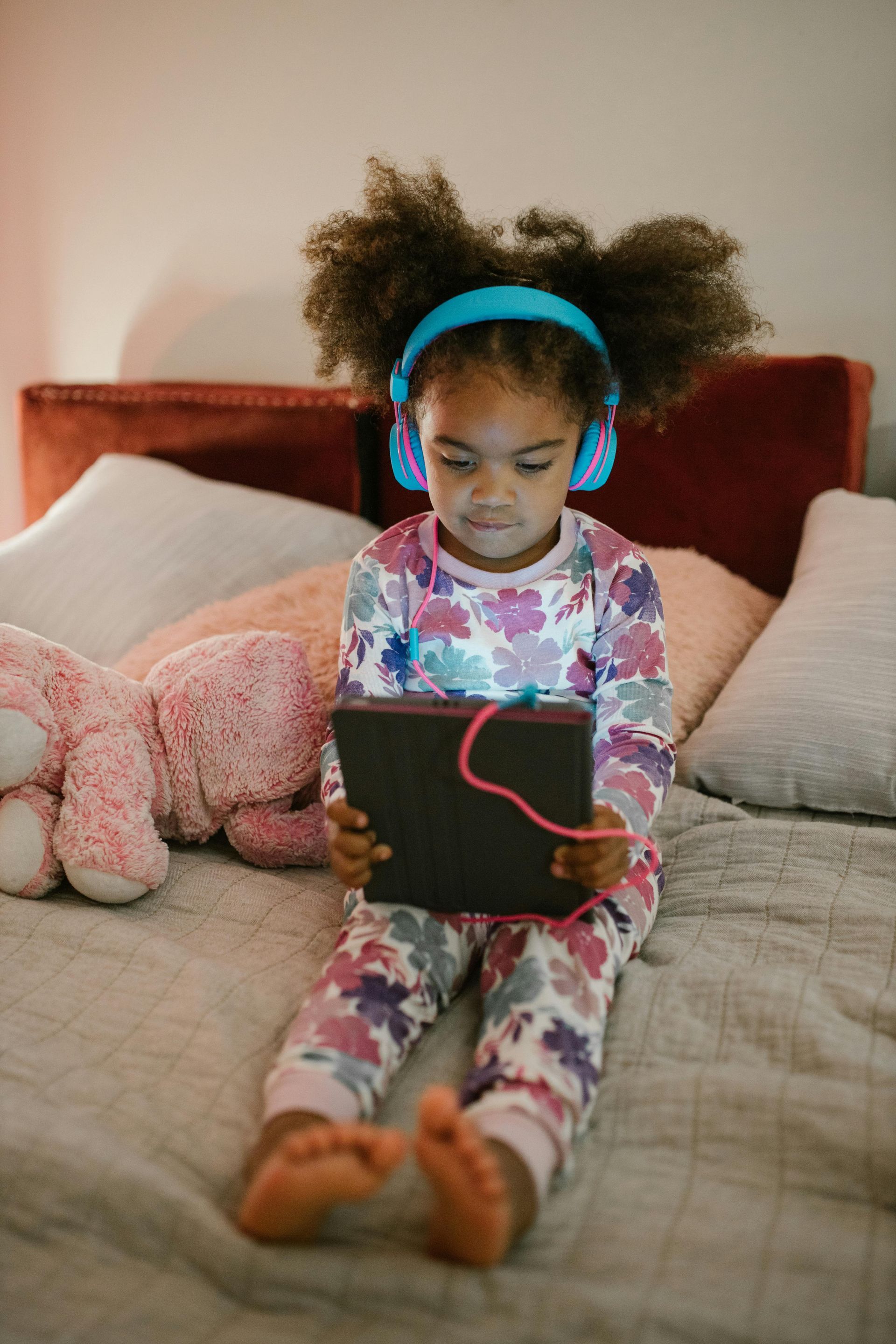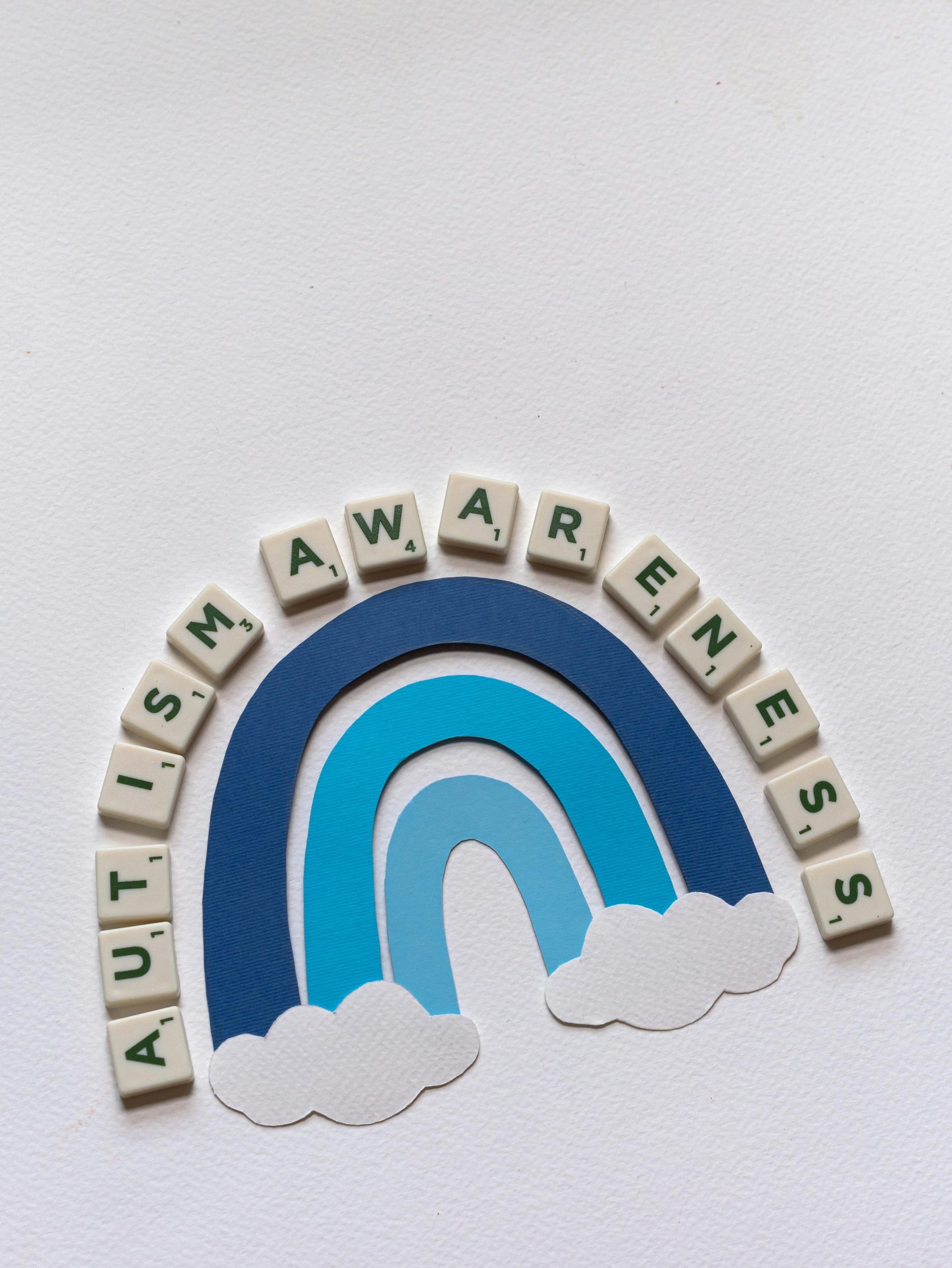Could Screen Time Be Stealing Your Child’s Sleep?
Lacy Hess • April 21, 2025
Could Screen Time Be Stealing Your Child’s Sleep?

In today’s world, it’s nearly impossible to avoid screens — TVs, tablets, phones, gaming devices — they’re everywhere, and let’s face it, kids love them. Whether it’s watching their favorite cartoon, playing a quick game, or FaceTiming with grandparents, screen time has become part of daily life for most families.
But here’s the big question:
Could screen time be impacting your child’s sleep?
👉 The answer: Absolutely!
If your child enjoys screen time before bed and still falls asleep easily, sleeps soundly, and wakes feeling rested — that’s great! Chances are, screens aren’t a big problem for your little one’s sleep habits.
But if you’re dealing with:
❌ Bedtime battles
❌ Long stretches of tossing and turning
❌ Early morning wake-ups
❌ Frequent night wakings
…it’s time to take a closer look at your child’s evening routine — and their relationship with screens.
Why Screens Can Mess With Sleep
The glowing light from screens — especially tablets, phones, and TVs — gives off artificial blue light, which can interfere with the brain’s ability to produce melatonin.
Melatonin is the hormone that helps your child’s body recognize when it’s time to settle down and fall asleep. When screen time sneaks too close to bedtime, this light can trick their brain into thinking it’s still daytime, making it harder to wind down and drift off.
And it’s not just about the light. The content your child is watching or playing can also be overly stimulating, especially if it’s exciting, fast-paced, or interactive. Their brain stays active long after the screen is turned off, which delays the natural process of relaxation and sleep.
The Power Struggle You Didn’t See Coming
Another sneaky way screens can disrupt bedtime has nothing to do with blue light or brain stimulation — and everything to do with the moment you try to turn the screen off.
If screens are part of your child’s nightly routine, you’ve probably experienced it:
😩 Meltdowns when the show ends.
😩 Negotiating for “just one more episode.”
😩 Resistance and frustration when the device gets taken away.
When kids are already tired, this battle over turning screens off can create unnecessary stress for everyone — and often delays bedtime even further.
But here’s the good news:
By removing screens altogether in the 30 to 60 minutes before bedtime, you eliminate the conflict before it even starts.
No more arguments.
No more last-minute negotiations.
Just a smoother, calmer transition to sleep.
So, What Can You Do?
If your child is struggling with sleep — whether it’s difficulty falling asleep, staying asleep, or settling at bedtime — adjusting their pre-sleep routine can be a powerful first step.
💡 Start by creating a screen-free zone for the final 30 to 60 minutes before bed.
This gives your child’s mind and body time to relax, helps melatonin production kick in, and prevents overstimulation.
You can replace screen time with calming, connection-based activities like:
📖 Reading books
🎵 Listening to soft music or white noise
🧘♂️ Doing quiet play or light stretches
💤 Sticking to a predictable bedtime routine
This simple change can make a huge difference in your child’s ability to fall asleep — and stay asleep.
Early Wake-Ups and Screen Habits
And let’s not forget about those 5 AM wake-ups. Sometimes the way we respond in those early morning hours can unintentionally encourage the habit.
If your child wakes up at the crack of dawn and you:
☀️ Bring them into bed
☀️ Hand them a snack
☀️ Turn on their favorite show
…it can accidentally send the message that early wake-ups are acceptable and even rewarding!
To help break the cycle, try:
🛌 Setting clear expectations for morning wake times
🚦 Using an OK-to-wake clock (red = sleep time, green = get up!)
🚫 Staying consistent and gently reinforcing boundaries
🎟️ Using a bedtime pass system to manage requests after lights out
Consistency is key — and once your child learns that early wake-ups don’t come with snacks and screen time, they’re far more likely to stay in bed until an appropriate wake time.
Need Help Breaking the Cycle?
Screen habits can be hard to change, especially when you’re running on empty from sleepless nights. If you’re stuck in a cycle of restless nights, early wake-ups, or bedtime struggles, you don’t have to figure it all out alone.
💬 Send me an email or book a FREE 30-minute consult today and let’s talk about how I can help bring sleep back to your home!
You and your child deserve restful nights — and I’m here to help you make that happen. ❤️💤
Not ready for 1:1 support? No worries! Sign up for my newsletter and get my weekly blog posts — full of helpful sleep tips — delivered straight to your inbox!
You and your child deserve restful nights — and I’m here to help you make that happen. ❤️💤




